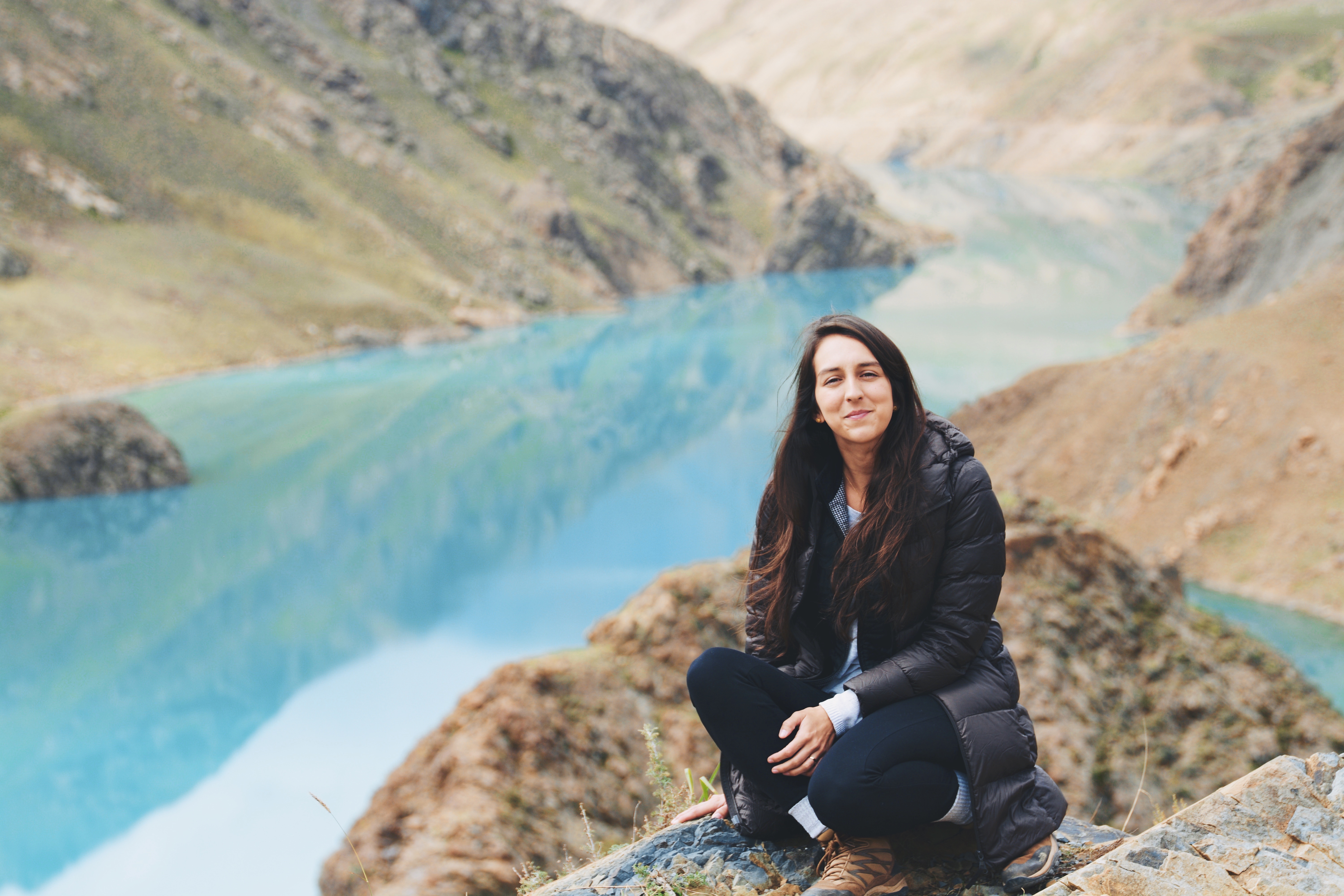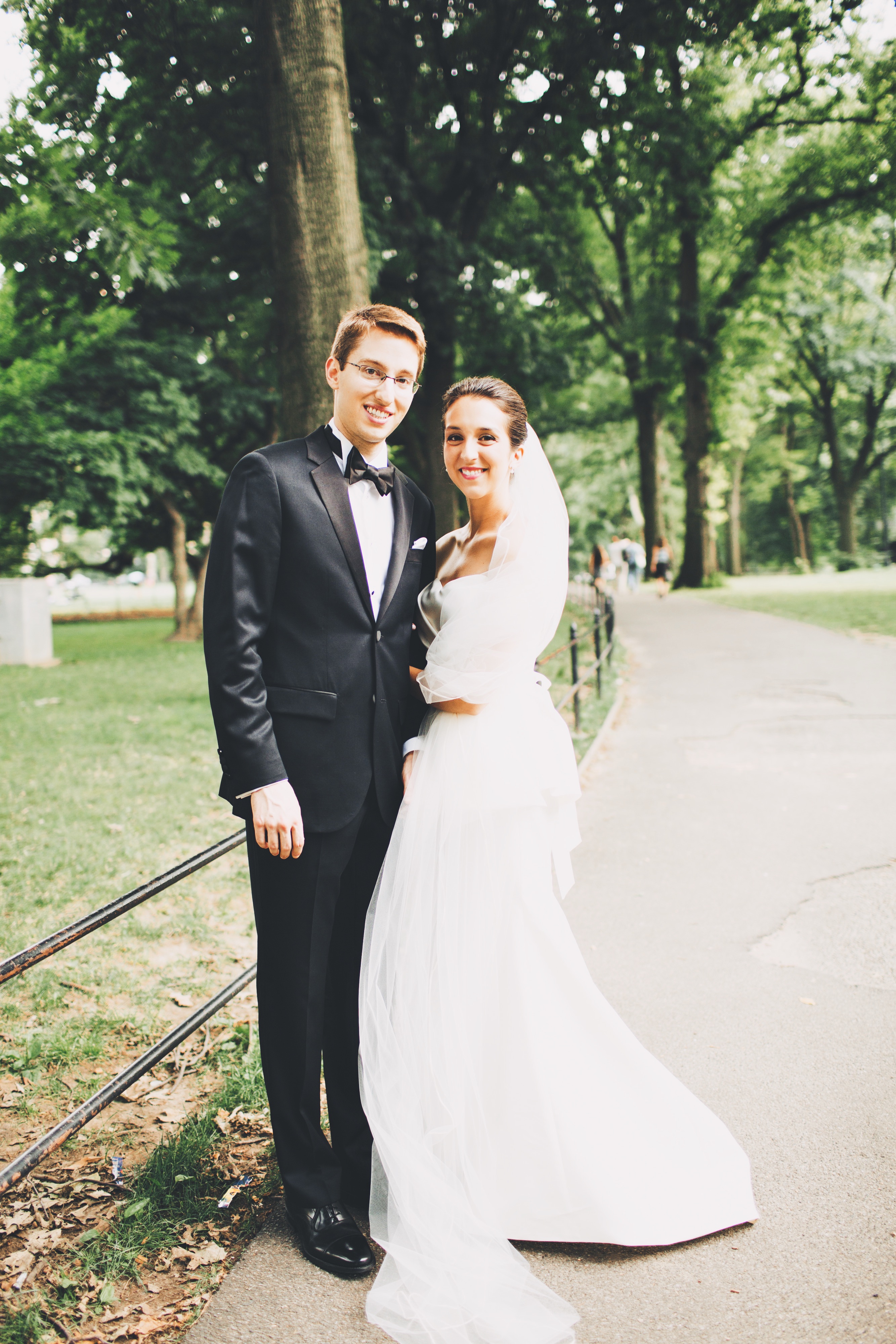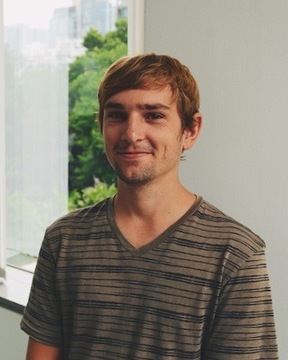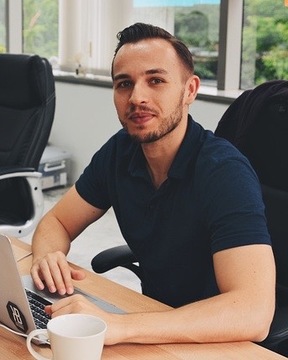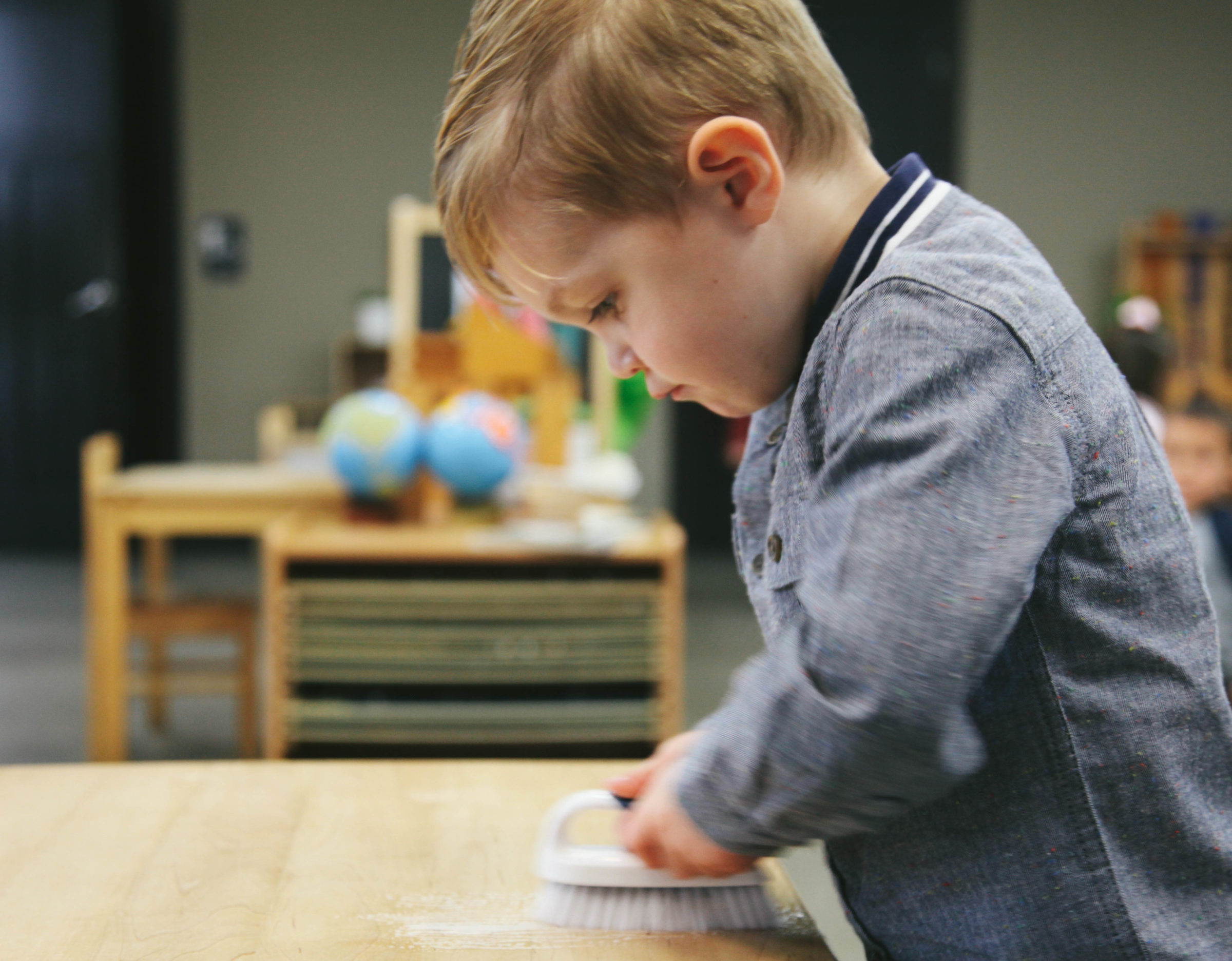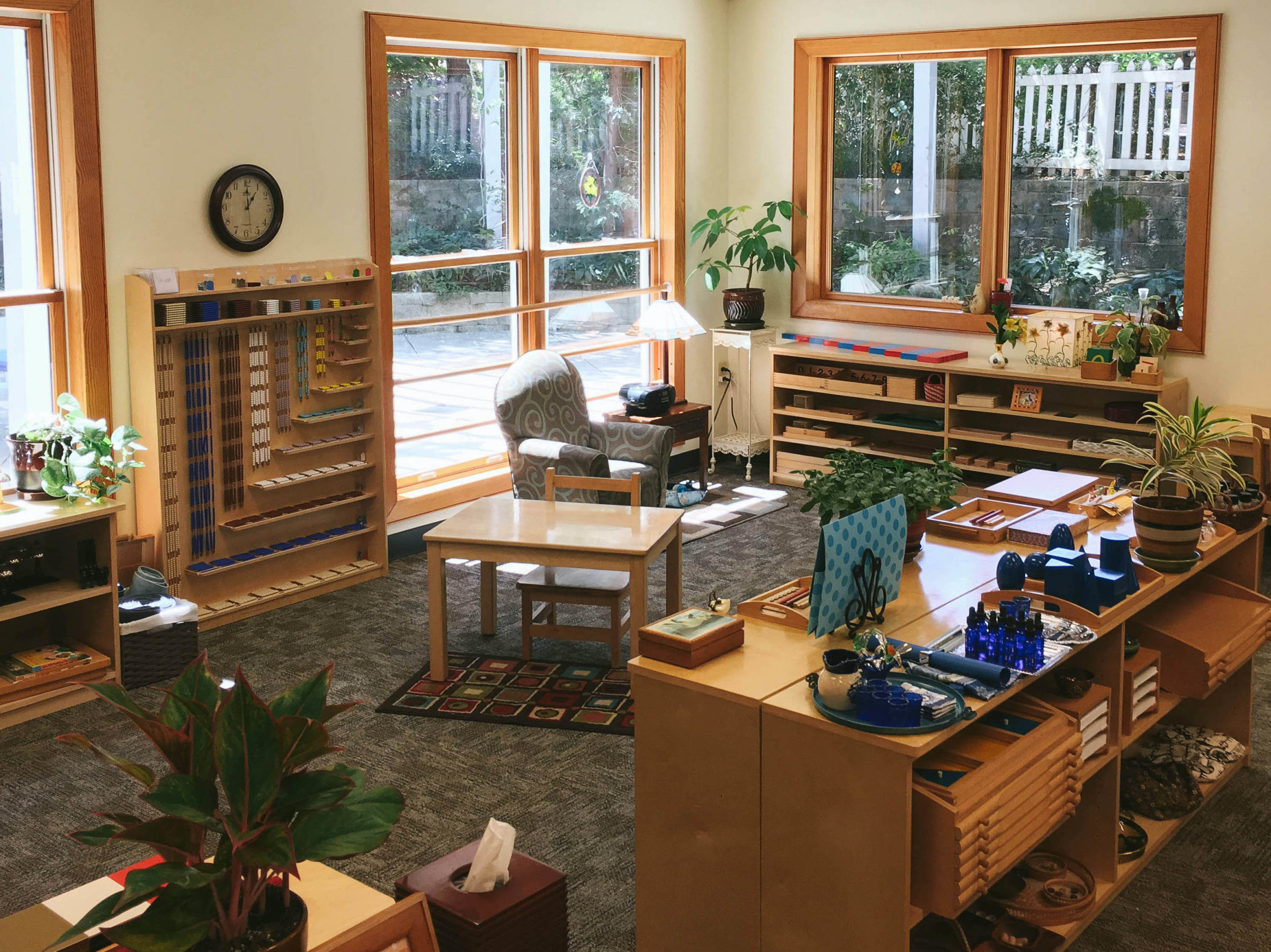Spotlight The Montessori Company
Spotlights
We are always on lookout for new voices in Montessori. We love hearing these stories and sharing them with the world. There are people around the globe doing amazing things, contributing to Montessori and to the development of children in so many capacities — teacher, parent, advocate, and so many more.
We first learned about Michelle Rugel-Hiatt through her site, The Montessori Company. Vocabulary cards can be difficult to find, and hers are beautiful. We reached out, to learn more about the teacher behind this lovely company, and her adventures are so compelling.
Q: Can you tell us a little bit about yourself? Your background, your interests, your dreams?
I grew up in Maryland and went to The University of North Carolina at Chapel Hill to study International Relations and Political Science. When I was in University, the more I learned about the state of the world—the national and tribal conflicts, the animosity among different cultures—the more I felt that education would be the core foundation of future peace and tolerance. It isn’t necessarily advertised as Montessori’s primary value, but the key tenant of the Montessori philosophy centers on fostering peace within the child and their environment. When I came upon Montessori somewhere amidst my studies and discovered her core philosophies I absolutely fell in love with it!
After finishing undergrad I studied at The Washington Montessori Institute and received my AMI Elementary diploma from Dr. Kay Baker, at the same time earning my Masters in Education from Loyola. With my new AMI diploma in hand, I headed to Chicago to work in a bilingual school and subsequently moved to Switzerland to help set up a new bilingual elementary program at a school in Lugano. After working with elementary-aged children, I knew I wanted to continue my Montessori education and decided to move to Puebla, Mexico to do my AMI Primary training where I received my diploma from Coral Ruiz.
After Mexico I headed to New York City to marry my partner in crime for the previous nine years. A week and two wedding ceremonies later (one in the U.S. and one in Ecuador for my family that could not travel), Paul and I moved to Bangkok, Thailand where we currently reside. For the past two years I have been teaching in a trilingual Montessori primary environment.
I absolutely love to travel so I’ve taken advantage of living in S.E. Asia and have explored many different countries in the region. This past summer I also started my Assistants to Infancy (0-3) training with Judy Orion in Denver, and when we move back to the U.S. next year I’m opening a bilingual (Spanish & English) Montessori farm school in Ft. Collins, Colorado which is currently being built.
Q: Now that the hardest question is out of the way: What’s your favorite color?
My favorite color has to be purple! As a child I loved purple because it was my mom’s favorite color and it seems to have stuck.
Q: Do you have a favorite book? How about a film?
It’s a hard choice between The Sound of Music (my favorite classic) and Blood Diamond (I can’t get enough of Leonardo). My absolute favorite T.V. series of all time is Downton Abbey. As for books, I love everything by Jared Diamond (Guns, Germs and Steel or The World Until Yesterday) and Maya Angelou’s collection of poems Wouldn’t Take Nothin’ for my Journey Now.
Q: When you close your eyes late at night, and imagine waking up and starting a new adventure: what is that adventure?
I just started the adventure of opening my own Montessori school and I’m generally daydreaming about that when I wake up. I’m also always dreaming of upcoming travel – my next big destination is India. But my husband and I also intend to start a family soon and that will be the most exciting adventure of all!
Q: What first appealed to you about Montessori?
The peace education elements of Montessori’s work was what first appealed to me and continues to motivate me today. I believe she was spot on when she said if education does not teach us to be a more peaceful society, then what is it good for?
Q: What advice do you have for new Montessori adults?
Stick to your training but also do what’s right for you. Don’t be afraid to try out new things and experiment a little. I’m not advocating that you diverge from your training too much but give yourself the freedom to do things a bit differently from the more experienced guides around you and learn about yourself and your classroom.
Q: Did you have a “Montessori Moment?”
I learned about and came to love the Montessori method over months of learning about it, and was absolutely blown away by the classrooms I observed. I’m not sure whether that qualifies as a moment, it was more of excitement growing steadily the more I invested in and learned about this amazing community.
Q: What’s your favorite Montessori quote?
Hmm… it’s very hard to choose just one!
“We shall walk together on this path of life, for all things are part of the universe and are connected with each other to form one whole unity.”
“Only when the child is able to identify its own center with the center of the universe does education really begin.”
“Establishing lasting peace is the work of education; all politics can do is keep us out of war.”
“If help and salvation are to come, they can only come from the children, for the children are the makers of men.”
Q: What inspired you to start The Montessori Company?
As I have always had an interest in interior design, I slowly began to realize that one of the main factors in creating a peaceful me was the beauty of my environment. Montessori’s ideas regarding the order and beauty of the prepared environment have always resonated with me and I feel they are important factors in helping to create a more peaceful generation of children.
Now I am motivated to help guides create more beautiful spaces with beautiful Montessori materials so that children can be surrounded by beauty and find peace. For now The Montessori Company is focusing on downloadable language and math materials but we hope very soon to curate beautiful physical materials for Montessori environments as a service.
Q: What advice do you have for new parents trying to incorporate Montessori at home?
Find what works best for you and don’t get caught up in the details of doing everything “perfectly Montessori.” There is no such thing. Do your research – read her books and find a supportive community (homeschooling parents, Montessori school or online Montessori communities) – and then don’t sweat the small stuff.
“The families that I work with inspire me on a daily basis.”
When I first got into Montessori, I felt so overwhelmed with all the details and doing everything perfectly that it took away part of the joy of the work. Working with children is a gift and when we get too caught up in things other than the core of her philosophy, it takes away from the important aspects.
Q: What do you think is the best introduction to Montessori?
Observing in an environment, of course! After hearing about Montessori, I went to visit a near by school to see if I could observe the children during their morning work cycle – luckily for me, the school agreed. When I saw the children working, I fell in love. It is one thing to read about the method and then another to see it in action. Montessori’s books are also a great way to understand her work and perspectives.
Q: What continues to inspire you about Montessori?
The families that I work with inspire me on a daily basis. Our method changes the entire family, not just the individual child we are working with in our classrooms. As Montessorians we focus on “the child” but I think we forget that the child is part of a unit. Families are changed for the better by their child’s experiences in Montessori! Montessori is a lifestyle and her principles can be implemented in all of our lives, even if we are past the fourth plane of development.
Q: In what ways do you envision the future of education?
I hope that schools around the world become a place that children enjoy going to and where children go to be guided in becoming their best selves. We’ve standardized our educational system to a debilitating level, where uniqueness and individual learning styles are restructured by anachronistic, factory-like learning conditions. I hope we start to move away from that and into a place where children are treated like individuals, given freedoms of learning and expression, and allowed to explore the universe on their own terms as they do in a well-run Montessori environment.
Q: Where do you see Montessori in the next 100 years?
Of course I would love to see Montessori schools all around the world positively affecting communities that were previously untouched by the Montessori method. I would love to see Montessori in more public sectors and for there to be no hindrance for families that would like to send their children to Montessori schools.
I also hope that local governments and Montessorians can work together more and share ideas about what is truly good for children. There are many examples in which local school governments and Montessorians are working together to create lovely environments for children but we need more of this. As someone who is currently going through the process of opening a school, I can say it can be a bit discouraging at times to learn of the things that we would love to be able to do in our environments with children but cannot because of potentially outdated or superfluous state regulations.
As Montessorians, I think we need to get out of the Montessori bubble more often and show other educators what we are about – we need out reach to those outside of our circles and develop a cross-pollination of ideas with our counterparts in traditional school systems and other alternative forms of education.
I also hope to see the Montessori community do more to embrace multi-lingual environments. Having a well functioning Montessori environment where children learn more than one language is still a challenge and I hope that in 10 years we see multilingualism as a common aspect of Montessori schools.
Written by:
Baan Dek
